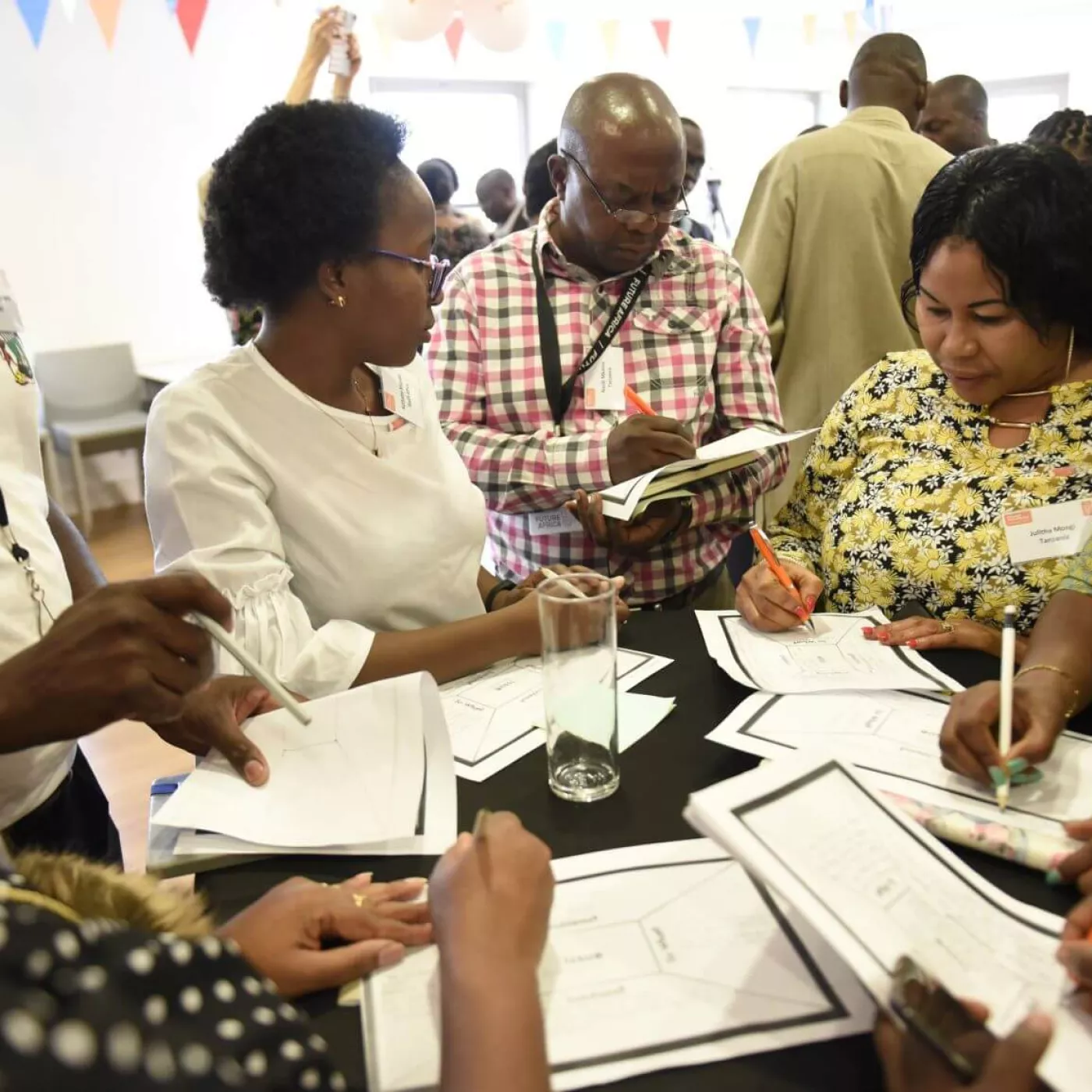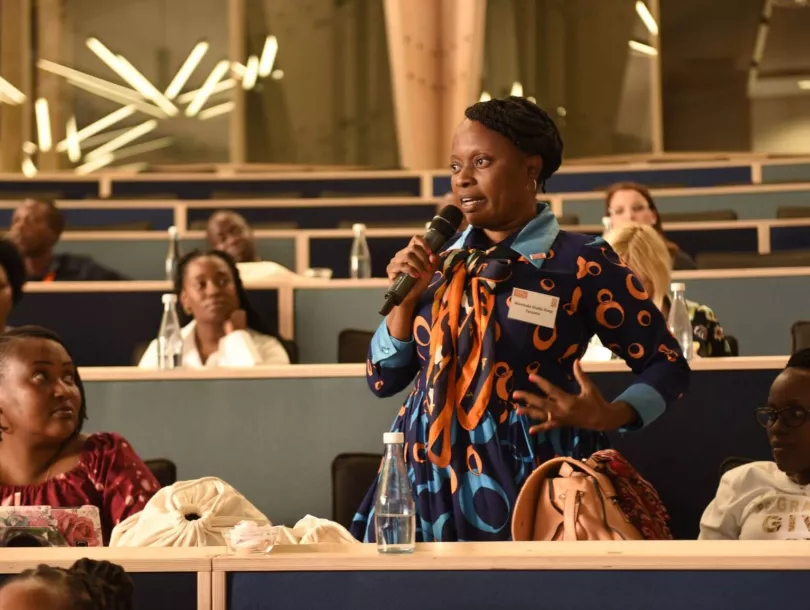The paradigm shift in development cooperation

Lots of countries once listed on the UN’s ‘Low Income Country’ list have become emerging economies. In this rapidly-changing environment countries are shifting focus and putting old practices to rest, especially in the area of development. Today, development is all about collaboration on the basis of equality. Both with western organisations, as well as with local and interregional organisations.
“Local innovation based on beneficiation of local resources are key to a successful economic path, and support from western countries can catalyse such opportunities”, explains Nawaz Mahomed, Associate Professor at Stellenbosch University (South Africa), who has been involved in multiple intra-African projects.
A massive realignment
The Orange Knowledge Programme aims for ‘sustainable and inclusive development through international collaboration’. In line with its Theory of Change, outlining the desired outcomes and required interventions, it follows a demand-driven approach in which reciprocity and mutual benefits are key. Through the programme, foreign educational organisations, companies and governments are supported and exchange valuable knowledge. The regional partners are urged to take an ‘active role’ and co-funding is encouraged, and sometimes even mandatory.
“A massive realignment has taken place over the past ten years”, confirms Mervin Bakker, director of Nuffic’s Netherlands Education Support Office (Neso) in South Africa. “Developing countries aren’t just looking to Europe anymore. Increasingly, they are teaming up locally and with other regions.”
Nawaz has seen up close the successful development of regional collaboration networks, programmes and platforms in South Africa ‘with potential for inward investment from local government and industry’, he says. “In discussions here about the best collaboration efforts, sustainability and developing mutual benefit have been at the core.”
Interregional problem solving
The Netherlands, with its world-renowned universities (7 of them rank the World top 100) and internationally-oriented business community, stands more than ready to adapt to this changing environment. The Holland Alumni Network for instance provides The Netherlands with a global group of professionals who, after their study in The Netherlands, went on to work in business, government and education in their respective countries. Having shared the same experience, most of them have kept in touch with each other, often through alumni events. In a world in which regional cross-border collaborations become more common, the Holland Alumni Network is a great starting point for (inter)regional problem solving.

“Local innovation based on beneficiation of local resources are key to a successful economic path.”
- Nawaz Mahomed, Associate Professor at Stellenbosch University
This was on full display last September during the Orange Knowledge Exchange Series in South Africa. Holland Alumni from five African countries gathered in Pretoria to discuss challenges on Water, Food Security and Energy. “Eyes were opened”, Mervin says. “Attendees suddenly realised that not only their own country is coping with certain issues. For instance, often-overflowing rivers are an issue for neighbouring countries as well. Transboundary problems need transboundary solutions. Knowledge is often available in the regions themselves, it just needs to be unlocked. The Netherlands can be the facilitator of that.”
After this successful edition in South Africa, a second interregional Orange Knowledge Exchange Series was organised in Bangkok (Thailand). Next year, more of these events are scheduled.
Nawaz is welcoming Dutch support through Neso South Africa. “The Nuffic model for development cooperation has obviously been well thought through, especially on issues relating to intersectoral impact and alignment of country implementation plans. The direct engagement by Nuffic and its Neso’s in promoting their programmes in the country has worked very well, unlike many other international development support programmes.”
Constructively contributing
Unlocking, connecting and contributing to local expertise – instead of importing it – has become one of the primary focuses of the offices abroad working on the Orange Knowledge Programme. So when the Indonesian government recently launched Indonesian Aid, an endowment and development fund to help reduce poverty and social inequality around the world, Neso Indonesia saw an opportunity.
“When it comes to international collaboration, The Netherlands is a small yet experienced player”, Peter van Tuijl says, director at Neso Indonesia. “We have a lot of relations in Africa, so I believe this fund is something we can constructively contribute to. This way we are not only strengthening the relationship between The Netherlands and another country, but also between other countries and regions.”
He sees a similar role for The Netherlands in the University of Indonesia’s goal of establishing an African Study Centre. "The Netherlands already has several African Study Centres, several universities offer African Studies. With this experience we are in a great position to constructively contribute and advise, in order to enhance regional partnering.”
Interregional collaborations, also between academic institutions, are at times hindered by political instability, lack of political leadership and low levels of government funding. But when collaborations did gain steam, they have had ‘a galvanising effect on Southern African countries’, says Nawaz.
“Eyes were opened” during the Orange Knowledge Exchange Series in South Africa.

Living Labs
That is one of the reasons Neso’s are organising Living Labs. In Living Labs, thorny local issues are translated into international and interregional collaborations. Although it often starts out as a project between universities in The Netherlands and abroad, local parties tend to catch on quick. “We’re seeing local banks, consultants and the city of Jakarta getting involved”, says Peter about a water management project with different Dutch stakeholders in and around Rotterdam.
In their quest for innovative internationalisation, some Neso’s are taking it one step further, with the launch of ‘Co-Labs’ , Living Labs in overdrive so to speak, in which more educational institutions, companies and cities are working together in multiple locations. In South Africa for instance, Capetown, Johannesburg and Durban are partnering in frugal innovation. Currently, a Living Lab project in South Africa is operating under the banner of the Orange Knowledge Programme, and more are expected to be launced in the near future as part of Tailor-Made Training Plus.
“Projects supported by the West, including Nuffic, are having a positive impact on intra-Southern African collaboration”, says Nawaz.
“I fervently believe in the importance of regional collaboration, with the Netherlands in a supporting role”, concludes Mervin. “We cannot do everything. But we can plant seeds and help them grow.”